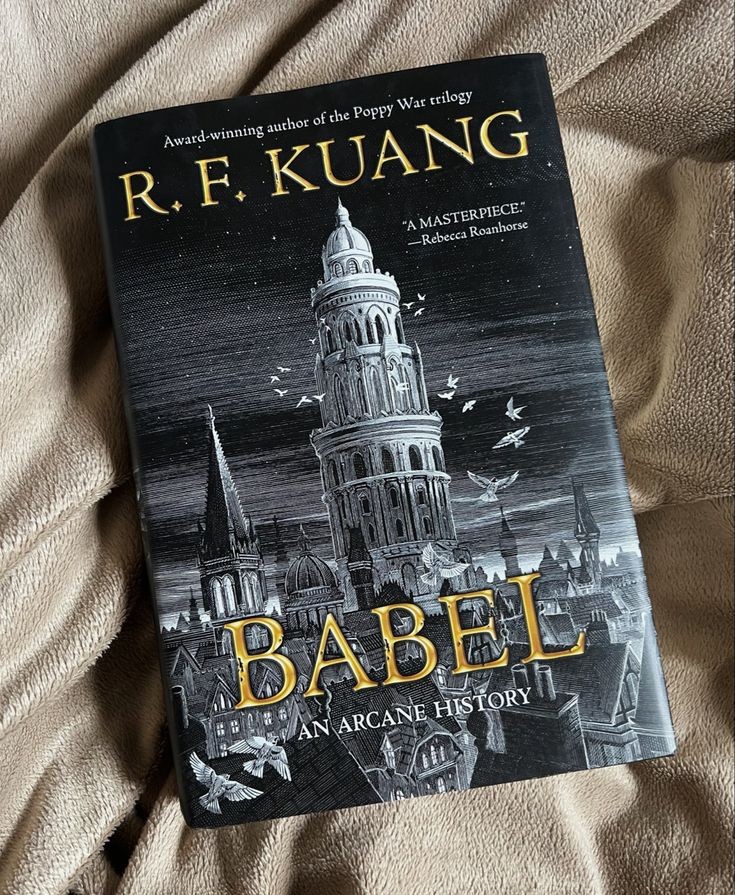
hat if language was fun and captured your imagination? R.F Kuang presents Babel: the Necessity of Violence. The novel is set in the backdrop of 19th-century Oxford. We follow the main character, Robin, as he learns more about his family and how his Chinese heritage has the power to possibly unwind the justice that’s in the translation institute. This review dives into the plot and if it is worth the hype.
Plot Overview
The story follows Robin Swift, a Chinese orphan brought to London by a mysterious benefactor, Professor Lovell. He trains Robin in the arcane art of translation, a powerful magic system where words and their meanings fuel alchemical transformations. Robin soon becomes a student at Babel, Oxford’s prestigious translation institute, where linguistic mastery shapes the empire’s expansionist ambitions.
As Robin grapples with his identity and the moral implications of Babel’s work, he faces the dilemma between loyalty to the institution that gave him a future and allegiance to an underground resistance fighting against imperial oppression.
What I Liked About Babel
1. Intricate World-Building
Kuang’s portrayal of Oxford is richly detailed. It attracts readers in both the academia and its darker undercurrents. Babel’s magic system, which hinges on the power of translation and the untranslatable gaps between languages, is a unique and intellectually engaging concept.
2. Thought-Provoking Themes
The novel excels in its exploration of colonialism, language, and cultural identity. It draws clear parallels between historical imperialism and the commodification of knowledge. Robin’s journey offers a nuanced look at the costs of complicity and rebellion.
3. Interesting Characters:
Robin and his cohort — Ramy, Victoire, and Letty — form a compelling group dynamic. Each character grapples with privilege, race, and class in ways that highlight the tensions within academia and society. Their camaraderie and conflicts feel authentic and poignant.
What Babel Could Be Better
1. Pacing Issues
At over 500 pages, Babel can feel slow in parts, especially for readers expecting a more plot-driven fantasy. Kuang takes her time establishing the world and themes, which may frustrate those craving immediate action.
2. Heavy-Handed Messaging
While Kuang’s critique of colonialism is powerful, it can occasionally feel overt, with less subtlety than some readers might prefer. However, this directness may resonate with readers who appreciate fiction that doesn’t shy away from political commentary.
Is Babel Worth the Hype?
Absolutely — but with caveats. Babel is not a fast-paced adventure. It takes a minute for you to get into the meat of the story. You get to question a lot of your preconceived ideas as you enter the story. It’s an ideal read for fans of dark academia, historical fantasy, and those that enjoy complex stories.



Leave a Reply